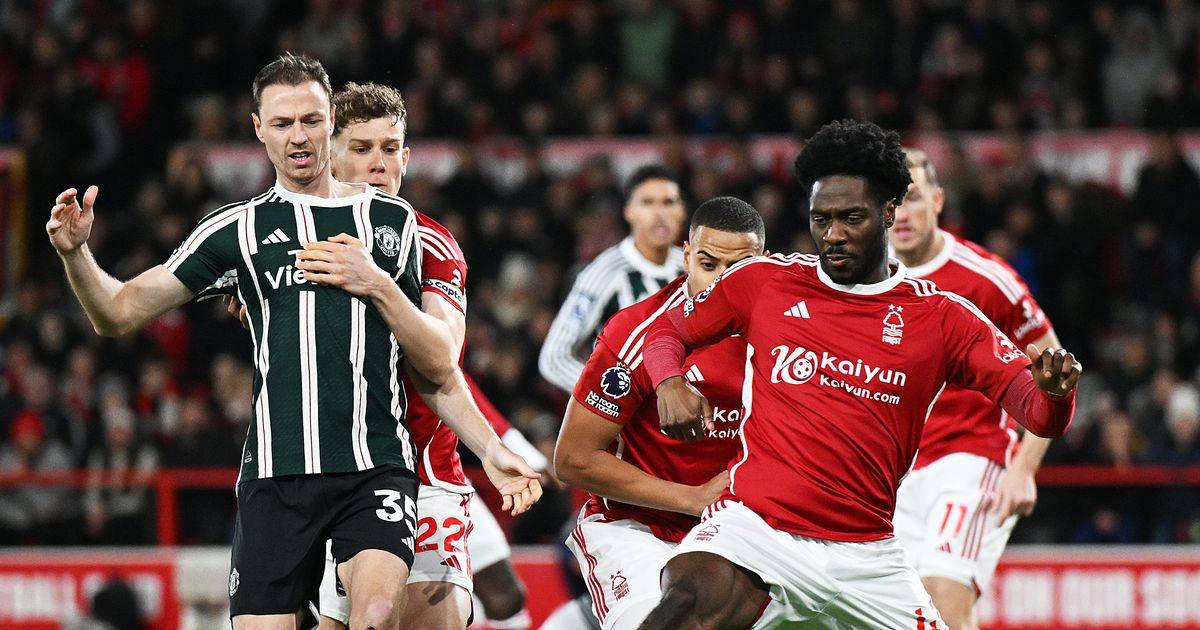In the wake of Manchester United's 2-1 defeat to Nottingham Forest, the footballing world found itself dissecting the decisions made by the Red Devils' manager, Erik ten Hag. The focal point of scrutiny was the substitution of Kobbie Mainoo at half-time, a move that drew harsh criticism from former Manchester United goalkeeper, Peter Schmeichel.
Schmeichel, known for his outspoken nature, did not mince words as he dissected the pivotal moments of the match during an interview with Premier League Productions. The seasoned goalkeeper took particular issue with ten Hag's decision to replace Mainoo, who had been instrumental in neutralizing Nottingham Forest's midfield threat throughout the opening 45 minutes at the City Ground.
Expressing his discontent, Schmeichel remarked, “He makes a substitution I think that has a really big effect on the game. Yes, I said this before, I can understand you want McTominay on, but not for the guy you take off." The critique emanated from Schmeichel's belief that Mainoo, a player he acknowledged as talented, had played a commendable first half, effectively controlling the pivotal midfield area.
The intricacies of tactical decisions in football are often subject to intense scrutiny, and Schmeichel's analysis delved into the strategic implications of ten Hag's substitution. While recognizing the potential impact of introducing Scott McTominay, Schmeichel argued vehemently against the choice to remove Mainoo from the equation. According to the Danish football legend, Mainoo's performance had been praiseworthy, asserting control over the designated area of the pitch.
“There was no need to make that change when you have other players on the pitch that are doing absolutely nothing for you,” Schmeichel added, highlighting his belief that alternatives were available within the squad who could have been sacrificed without compromising the team's stability. This perspective opens the door to broader discussions about squad management, decision-making under pressure, and the delicate balance between sticking to a predetermined strategy and adapting to the flow of the game.
The debate surrounding managerial decisions is an integral part of football discourse, and Schmeichel's critique provides fans and pundits alike with a lens through which to assess the dynamics of the match. The essence of his argument lies in the strategic misstep of sacrificing a player who, in his view, was contributing positively to the team's performance.
It is worth considering the broader context of Manchester United's season and the mounting pressure on managers in the competitive landscape of the Premier League. Each decision, especially those that influence the course of a match, can have ripple effects that extend beyond the final whistle.
In this instance, the consequences of ten Hag's substitution became a focal point of discussion, inviting reflection on the fine margins that define success and failure in football.
Football is a game that thrives on opinions, and Schmeichel's outspoken assessment adds another layer to the ongoing narrative surrounding Manchester United's campaign. As the season unfolds, the repercussions of pivotal moments like the Mainoo substitution will continue to reverberate, shaping the team's trajectory and influencing the broader discourse within the football community.
Schmeichel's critique of Erik ten Hag's substitution strategy provides a nuanced perspective on the tactical intricacies that define elite football. The substitution of Kobbie Mainoo at half-time, according to Schmeichel, was a decision that had a profound impact on the dynamics of the match, sparking discussions about managerial choices, squad depth, and the pursuit of success in one of the most challenging football leagues in the world.



No comments yet
Be the first to share your thoughts!